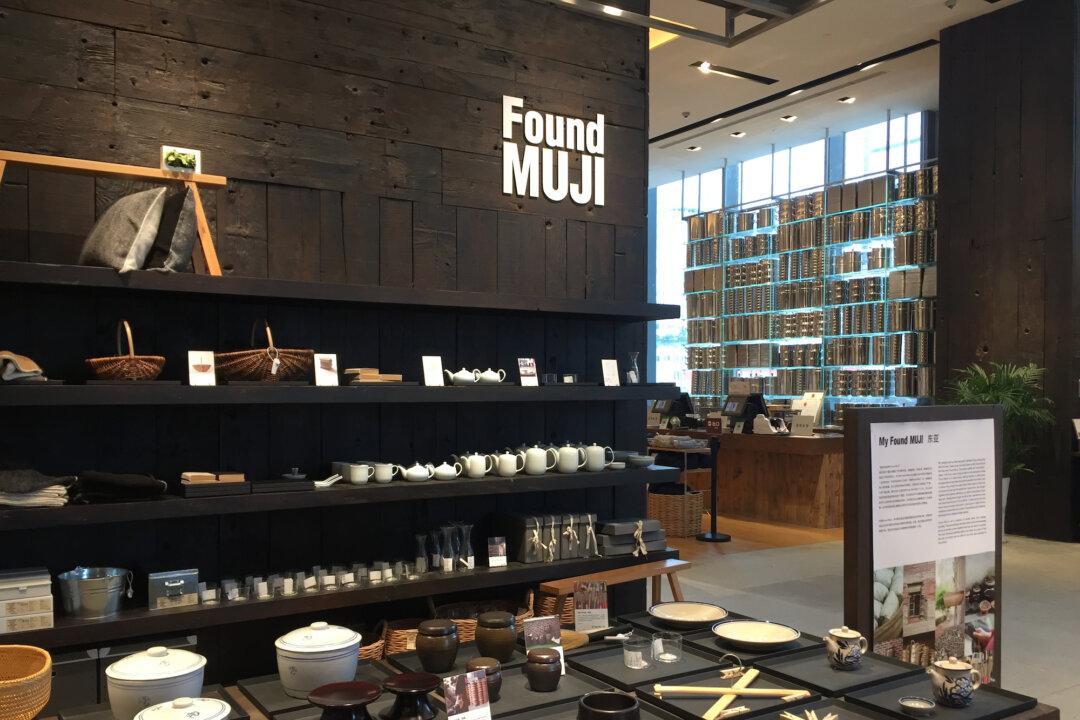Muji, a Japanese lifestyle brand known for its minimalist-style products, is struggling to stay in business in China after running afoul of the Beijing regime earlier this year, as well as facing competition from a copycat company that has been opening stores throughout the northern part of the country.
The Japanese company, founded in December 1980, currently operates more than 850 stores in more than 25 countries worldwide, including the United States. Its main products include apparel, stationery, tableware, skincare, bags, and suitcases.
In China, there are 235 Muji stores as of July, according to China’s state-run newspaper People’s Daily, citing comments by Satoru Masaaki, president of Ryohin Keikaku Corp., which is Muji’s parent company. China accounted for about 17 percent of the brand’s total earnings, behind only Japan’s 65 percent, Masaaki said, while announcing Ryohin Keikaku’s first-quarter earnings, according to Japanese media Nikkei.
The Japanese company’s “ebbing image” in China has much to do with how Muji failed to include some islands in the East China Sea as belonging to China in one of its product catalogs, according to Global Times, a newspaper known for its hawkish nationalistic views. That occurred in January and drew the ire of some Chinese customers as well as the government.
Beijing has been known to punish foreign companies for failing to toe the Chinese Communist Party’s (CCP) line, especially when it comes to issues of China’s national sovereignty. The Diaoyu Islands, also known as the Senkaku Islands, is a group of five uninhabited islands in the East China Sea currently administered by Japan. However, China and Taiwan have also claimed them as their territory.





